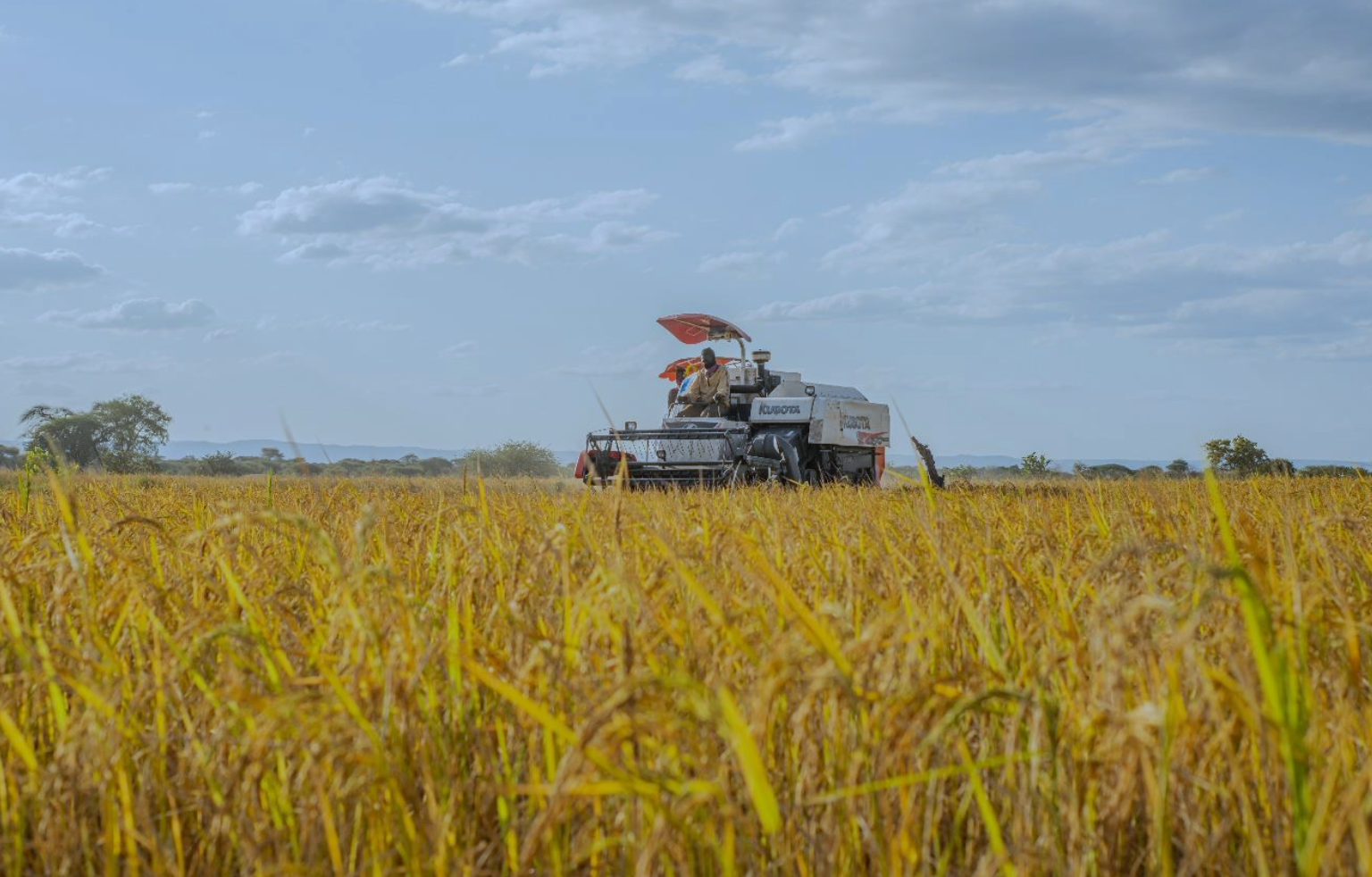Dar es Salaam
Tanzania’s agricultural landscape is evolving, with rice becoming one of the fastest-growing food sources, making it crucial for food security and self-sufficiency. However, small-scale rice producers, responsible for about 90% of the country’s rice production, face significant challenges such as low productivity, climate variability, and limited market access. The Growing Resilience program implemented by Norges Vel Tanzania with other partners aims to address these challenges by enhancing climate resilience and market-oriented rice production, strongly emphasising empowering women and youth in the sector.
Tackling Climate Variability with Innovation
The program will train over 10,000 small-scale rice producers in the System of Rice
Intensification (SRI), a climate-resilient production method that boosts productivity while being environmentally sustainable. Along with SRI, farmers will receive training on financial literacy, marketing, using climate-resilient seeds, and proper pre- and post-harvest handling procedures. The initiative will also educate farmers on the impacts of climate change, helping them build knowledge and practices that improve their resilience.
Women and Youth at the Heart of Change
Gender inclusivity is a critical component of this initiative. The program will focus on supporting women by ensuring that 4,750 female farmers receive the same training as their male counterparts, with additional support to foster equal productivity. Furthermore, 50 Village
Community Bank (VICOBA) groups involving 1,000 women will gain access to financial
opportunities. Women’s groups will also receive land and working capital to engage in quality rice production. Youth empowerment is another pillar of this program, with the formation of 50 youth groups to provide agricultural services, ensuring that young people play a vital role in shaping the future of Tanzania’s rice sector.
Building Stronger, Farmer-Owned Businesses
The program will strengthen two key farmer-owned companies, Mbarali & Neighbors Small Scale Farmers Limited (MTC) and Kilombero Rice Farmers’ Trading Co Ltd (KTC). These companies are integral to the local rice value chain, offering small-scale farmers access to essential services such as fertilizers, agricultural machinery, and credit. By enhancing these companies, the program ensures that farmers can access better prices and sustain their livelihoods.
Improving Access to Climate and Financial Information
A significant barrier to resilience for small-scale farmers is the lack of access to tailored weather, climate, and financial services. This program will create new partnerships to provide farmers with the information they need to make informed decisions about their farming practices, improving their ability to adapt to climate change. Two NORCAP experts are directly involved in developing these services.
The program is funded by the Norwegian Agency for Development Cooperation (NORAD) and implemented by Norges Vel Tanzania, in collaboration with various partners, including the Rice Council of Tanzania and Nafaka Kilimo. Together, they aim to strengthen food security for over one and a half million Tanzanian consumers by increasing productivity, improving market access, and fostering climate resilience in rice production.
This five-year initiative will address the root causes of low productivity and market access, increasing the resilience of small-scale rice producers and ensuring long-term food security in Tanzania. Through inclusive value chain development and a focus on women and youth, the program promises to build a sustainable, thriving agricultural sector for generations to come.
